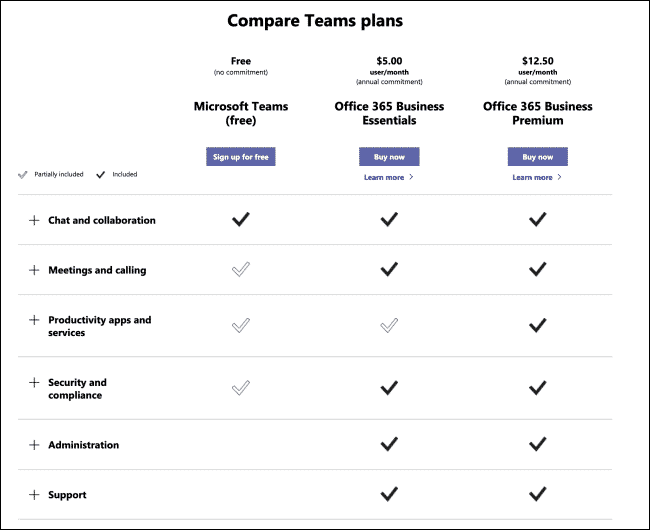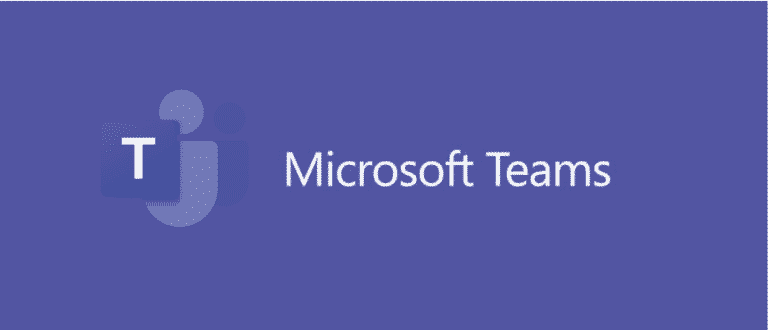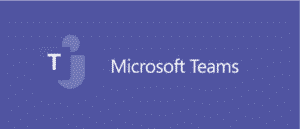Teams, Microsoft’s enterprise chat program, is reminiscent of IKEA’s self-service department. It’s a place for insiders only. If you work there and are familiar with the system.
What will we see here?
What is Microsoft Teams, and how does it works?
Microsoft Teams is a Microsoft 365/Office 365 cooperative workspace. That serves as a single centre for workplace interactions, collaborative teamwork, video conferencing, and file sharing. All in one unified set of tools.
According to Microsoft statistics provided in April. Teams, which was launched in 2017 as a competitor to collaboration pioneer Slack. It Grew to 75 million daily users as the COVID-19 pandemic deteriorated. Teams are the extremely fast-growing business app in the company’s history, according to the company.
Microsoft Teams have risen to prominence as a key component of Microsoft’s workplace productivity and collaboration technique since its launch. Aided by the thrust for work-from-home connectivity.
Microsoft Teams can serve as an alternative to — or even completely replace — email communications. But it also serves to connect workers and their apps more broadly, especially for remote workers. Consider it a “digital translation of an open office space,” as a Microsoft representative put it.
Some main features of Microsoft Teams
Microsoft Teams serves as the center of team collaboration in Microsoft 365 and Office 365. The platform includes several features to assist employee teams in communicating and collaborating.
- Chatting via messaging: Teams is, at its core, a chat-based collaborative workspace. That includes group and individual messaging as well as threaded and persistent conversations. Teams’ messages, like other messaging services, can include gestures and GIFs (Graphics Interchange Format).
- Calling: For voice calling, Teams offers cloud-based telephony. Users can make voice over Internet protocol (VoIP) calls among Teams clients using the Teams app. Users of the Microsoft Phone System and Calling Plan can make, receive, and transfer phone calls. Microsoft also offers Direct Routing. Which allows customers to connect an existing PBX or Session Initiation Protocol (SIP) stem to Teams.
- Meetings via video: Users can hold virtual meetings with audio-only calls. As people collaborated remotely during the COVID-19 pandemic and work-from-home (WFH) guidelines, video conferencing adoption skyrocketed. Teams include some important video conferencing features such as customized virtual backgrounds, conference recording, transcription, whiteboarding, and breakout rooms.
- Sharing a screen: This older but critical characteristic is common in collaborative tools. Screen sharing, as the name implies, enables people to share their desktop displays. Including files, in real-time as when Teams call or video meetings.
- Calendar: Teams, like Microsoft Outlook email, has an extensive calendaring feature. That allows users to keep a record of their workweek, meetings, and other daily appointments. The calendars in Outlook and Teams are tightly integrated.
- Threads: A thread is formed by a series of messages. When responding to a message, users should choose Reply instead of starting a new discussion and thread. As colleagues converse, threads can grow quite long. Users can plan voice and video conferences within threads, allowing for more contextual communication.
Integrations with Microsoft Teams
Microsoft Teams integrates with other Microsoft 365 and Office 365 applications, such as Excel, OneDrive, PowerPoint, SharePoint, and Word. Teams also aim to integrate with apps outside the Microsoft realm. Such as Box, Cisco Webex Meetings, and Zoom, to boost workplace productivity. Microsoft Teams App Creator enables developers and enterprises to create custom apps for Teams.
Microsoft Teams merges with hardware components in addition to software. While Teams video calls are accessible via desktops and laptops, Microsoft has collaborated with conferencing hardware vendors such as Crestron, Logitech, and Poly to integrate Teams with their products.
Microsoft Teams is available on Android, iOS, macOS, and Windows systems. It is also compatible with the web browsers Chrome, Firefox, Safari, and Microsoft Edge.
Pricing plans for Microsoft Teams
Microsoft Teams is freely available, but it is not part of Microsoft’s software product suite. Paid versions of Teams include additional features and system integration with other Microsoft apps. For plans that include Teams, Microsoft uses the brand names Microsoft 365 and Office 365.
Microsoft’s products are aimed at a variety of industry vertical markets. Notably, Teams is aimed at healthcare, frontline workers, and education. Microsoft 365 Government G3 and G5 plans, as well as one-month freebies, add-on services, and nonprofit pricing, are also available.
The following table lists the subscription plans which include Microsoft Teams:

The higher-priced plans will get more features than the lower-priced plans. The Office 365 E3 plan, for example. Has more memory and can facilitate more meeting participants than the Microsoft 365 Business Basic plan. Which costs $5 per user per month.
Furthermore, certain calling features will be included in more expensive plans. However, those functions are only accessible as add-on services in lower-cost plans. Depending on the payment plan, certain security and compliance features will be usable as add-on services. More enhanced security features will be available in more expensive plans.
Is Microsoft Teams safe to use?
Microsoft Teams includes several security features. These include two-factor identity verification (2FA), single sign-on (SSO), and data encryption in transit and at rest.
According to Microsoft, the merchant does not have access to the uploaded files of customers. Customer data remains under the control of the customer. And Microsoft does not inspect information or teams for reasons unrelated to the service. These are some security protocols in Microsoft Teams:
- Advanced Threat Protection (ATP) Microsoft’s additional cloud-based service allows organizations to determine. Whether material in Teams is harmful and block user access to that content.
- Private channels within teams keep dialogues between specific users private and separated from the larger, overall team. Private channels are useful when certain users require a secure environment to discuss sensitive data, such as budgets.
- Safe Links, which is scheduled to be released in March 2021. Serves to safeguard businesses from malicious websites when users click links in Office apps.
- Meeting controls, such as the ability to disable video and consider inviting only attendees, are upcoming highlights. That should improve meeting management. Disable video allows a meeting organizer to unplug the video of a single attendee or all attendees. If participants were not invited directly to the meeting. An invite-only feature will direct them to the meeting lobby.
The security features, like the rest of the Microsoft Teams features, are changing constantly. As the merchant updates the platform regularly.
Conclusion
That ends our article here!
Microsoft Teams is an excellent choice, particularly if you already use Microsoft products. If not, it remains a powerful solution for larger organizations and corporations. However, before committing to a yearly subscription. See what you could do with the free plan or a trial of the premium services. We don’t believe there is a better collaborative workspace for major corporations right now. And you can count on Microsoft to keep improving it—unified collaboration appears to be the new big thing. And Microsoft is unquestionably at the forefront.
Do comment and share. Likewise subscribe to remain refreshed with all the Latest News, Offers, and Special Announcements
















